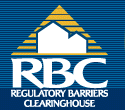Texas Adopts Legislation
to Mitigate Gentrification
East Austin, Texas has been undergoing significant changes within the past 10 years. Once thought of as an affordable community, its proximity to downtown has transformed it into a mecca for real estate investors. New residential construction and redevelopment have helped drive housing prices up to a level that threatens the displacement of longtime residents. “Austin is seeing an amazing revitalization of our urban core right now. As we enjoy the benefits of all the new activity around us, we need to strive to protect and maintain the character that makes our city such a great place to live, work, and play in the first place,” said Mayor Will Wynn. To address the effects of gentrification, the state of Texas passed the Homestead Preservation Act.
The Homestead Preservation Act
The Homestead Preservation Act was adopted in 2005 with the passage of House Bill 525. The bill authorizes municipalities to create a Homestead Preservation District that protects homeowners from being forced out of their homes due to rising property taxes and conversion or demolition of affordable housing. Although the legislation does not limit the creation of Homestead Districts to a certain municipality, the legislation was originally drafted to address the growing concerns in East Austin.
Cities that establish these new districts can utilize a number of tools, including community land trusts, land banks, and reinvestment zones to preserve homeownership in disadvantaged neighborhoods and help ease the effects of gentrification. Under a community land trust, a nonprofit organization acquires vacant land within the district, which can be used to develop affordable housing. The land trust may also retain title to the residential properties, but may sell or lease the homes to low- and moderate-income families. This arrangement allows families to own their homes, but not the land, thereby eliminating property taxes based on speculative land values and encouraging stability and housing affordability within the community.
The second strategy adopted under the Homestead Act further promotes affordable housing by establishing a community land bank. Land banks are quasi-governmental entities that acquire land with long-term delinquent taxes. The land bank retains tax-foreclosed properties until the title is cleared; the properties are then sold to the community development corporation for affordable housing development. The final strategy — tax increment reinvestment zones — serves as a financing tool that local governments can use to acquire land and construct or rehabilitate affordable housing within a specific area.
Conclusion
In January 2007, the Austin City Council adopted language to create a Homestead Preservation District in East Austin. “Affordable housing is one of the most challenging issues we face in our city today. This ordinance (Homestead Preservation Act) gives us an effective tool to promote homeownership and prevent the loss of homes due to rising cost,” said Council Member Sheryl Cole. In December 2008, the council approved the first tax increment zone in a Homestead Preservation District. Following the example of East Austin, other communities in Texas can utilize this legislation to mitigate the negative effects of gentrification and promote affordable housing development.
Next Article Search Archives
|


